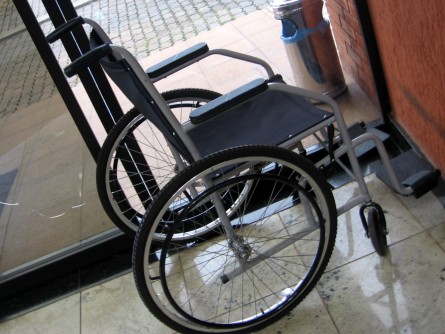As I was watching it last night (hey, I have little kids, the fact that I saw a movie within a month of its release is a small miracle), I was struck by a number of things. First, there is a scene in which the snotty racist women of Atlanta are having a charity benefit for the poor children of Africa. It's an obvious swipe at the fact that they are willing to raise money for kids they've never met but they treat the impoverished, oppressed people in their backyard (in their houses, actually), like garbage.
It got me to thinking (bear with me here on the connection) about Peter Singer's critique of American philanthropy. He wrote a book a few years back called The Life You Can Save, in which he offered a relentless critique of Americans, claiming they were giving nowhere near enough to solve poverty in other parts of the world, that while they would obviously feel compelled to save a child who was about to drown in front of them they would feel no compunction about letting millions of children on other continents perish from malaria or measles without a second thought. His critique was true as far as it went. Coming from the man who suggests that we should have more compunction about killing chimpanzees than human beings with severe forms of retardation and fetuses, the utilitarian Singer is not exactly Mr. Compassion. But let's grant him the premise that most Americans do care more about the tragedies in their own country than those abroad. Even if, objectively speaking, many more lives are being lost in Africa in deaths that are much more preventable.
It is human nature, of course, to care more about those close to us. There is presumably, a good evolutionary reason for this. If every chimpanzee decided to go help another chimpanzee's clan first, or even after, he helped his own, his own family would probably start to wonder about his loyalties. Many religions, of course, have tried to push back against this inclination. Judaism has laws about the treatment of strangers and Christians are, of course, instructed to leave all that clan stuff behind them. (In this one paragraph, I've managed to oversimplify two major world religions and an entire field of biology.)
To get back to The Help, I think we are more likely to criticize those who cannot see injustice and poverty in their own communities than those who cannot see it where they literally cannot see it. Indeed, the charity of the women of Jackson seems utterly meaningless and rather repulsive when one considers where they have failed. And these days it is much more fashionable among university elites to underestimate how much Americans do in their own communities, suggesting they are selfish for not being more cosmopolitan in their charitable impulses.
A couple of other things: One of the most horrifying parts of the movie is the realization that while civil rights won the day, there are many blacks in America today who are not living much better than the maids in segregated Jackson. If you drive around some rural areas in the South or look at some of our inner cities, you will find that legal equality has not translated into economic success for many.






Haven’t seen the movie, but have read the book. In raising the funds for the Poor Starving Children of Africa (PSCAs – anagram actually used in book), the women are not being nice – it’s another way to show their patronizing attitudes. It’s written as another mark against them, not as a “gray area” of being charitable one place versus another. They are not charitable in any sense of the word. Which only proves your point of the characters in The Help being either all good or all bad.
Here’s the excerpt:
http://www.brigidslipka.com/2011/06/fictional-giving-in-1960s-mississippi/